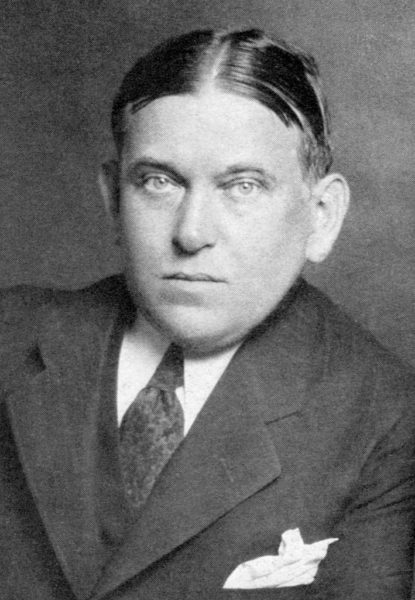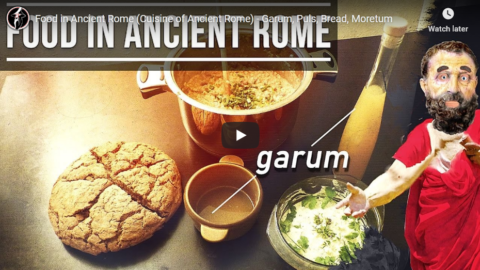SandRhoman History
Published 7 Jul 2019
Food in ancient Rome – the cuisine of ancient Rome is probably not everybody’s cup of tea. Food in ancient Rome was consumed at the mensa, the dining table of the ancient Romans. A usual ancient Roman meal for the upper classes could look like this: puls, one of the main ancient Roman meals. This was essentially a form of porridge, along with that they might have eaten bread, refined with olives and figs. Bread was often eaten with moretum, a spread, made of sheep cheese, a lot of garlic and herbs. Most Roman meals would have been spiced with garum, a fermented fish sauce, to go along with such a meal, the Romans drank water or wine. Beer, called cervisia, in contrast would have been considered barbaric. The wine was usually diluted with water and sometimes spiced with herbs and vinegar. Water with vinegar was called posca, another variant was mulsum, wine spiced with honey.
Ancient Roman food had even more variety, but for now we just made the recipes below. We might make some more ancient Roman food in the future though.
Ancient Roman recipes:
First off: Put garum into everything. That’s actually what the Romans used, usually instead of salt and/or other condiments. [Consider it the ketchup of the ancient world.]
Garum recipe
– 1000 g small fish (sardines, anchovies or similar, fresh or frozen but uncooked)
– 500 g sea salt
– 2 1∕2 tbsp. dried oregano
– 1 tbsp. dried mint
– 1,5 litres water
– 5 tbsp. honey
Put everything in a pot and cook it until the fish falls apart (ca. 15 minutes). Pestle it with a spoon or similar and reduce this broth for at least 20 minutes. Then strain it, let it cool and strain it again. Additionally, you can pour it through a filter cone to refine the garum even further. Keep the garum in the fridge and throw it away if it gets dreggy.
Moretum recipe
– 300 g of ricotta
– 100 g pecorino (or similar hard sheep cheese)
– 3 tbsp. white wine vinegar
– 3 tbsp. sea salt
– 3 cloves of garlic
– a bunch of thyme
– a bunch of rosemary
– a bunch of estragon [tarragon]
– a bunch of coriander
– garum
Press the garlic, grind the pecorino and stir all the ingredients until you get a consistent mass. Done!
Pro tip: You might want to be careful with the amount of salt and especially garlic you add. Three cloves make it very intense.
Puls recipe
– 500 g rolled oats
– 1.5 litres of water
– 1 tbsp. olive oil
– 100 g pecorino (or similar hard sheep cheese)
– 1 onion
– 2 carrots
– 150 g mushrooms
– 100 g streaked pork
– garum
Chop all the vegetables and cut the pork into strips. Then roast it gently in a bit of olive oil and put it aside. Cook the rolled oats with some water and add continuously as it disperses until you get a porridge-like consistency. Then add the prepared vegetables and meat and fold in the ground pecorino.
If you want to stay somewhat authentic to the Roman recipe use white, violet or yellow carrots: orange ones weren’t known in the occident until the Middle Ages.
Panis militaris castrensis (Roman bread) recipe
Ingredients for one loaf (4 – 6P):
– 500 g spelt flour (whole grain)
– ½ tsp. of salt
– olives
– figs
– 3 tbsp. olive oil
– 1 tsp. honey
– 3 dl water (hand-hot)
– 15 g yeast (or one package of dry yeast)
Mix everything up and knead it for at least 15 minutes. Then let it rise for an hour in a bowl covered with a towel (preferably in a warm spot). Form a loaf, cut six pieces (halfway through) and bake it for 35 minutes at 180°C.
Pro tip: take big olives and lots of them because the whole grain flour will be so dense that they kind of disappear.
Those recipes are taken from a cookbook which has been written about 2,000 years ago. Taking this into account you should be rather careful applying these cooking techniques. We are not to be held responsible for any damage resulting, neither for smelly apartments, nor for health issues.
#food #ancientrome #history #ancienthistory #rome
Twitter: https://twitter.com/Sandrhoman







